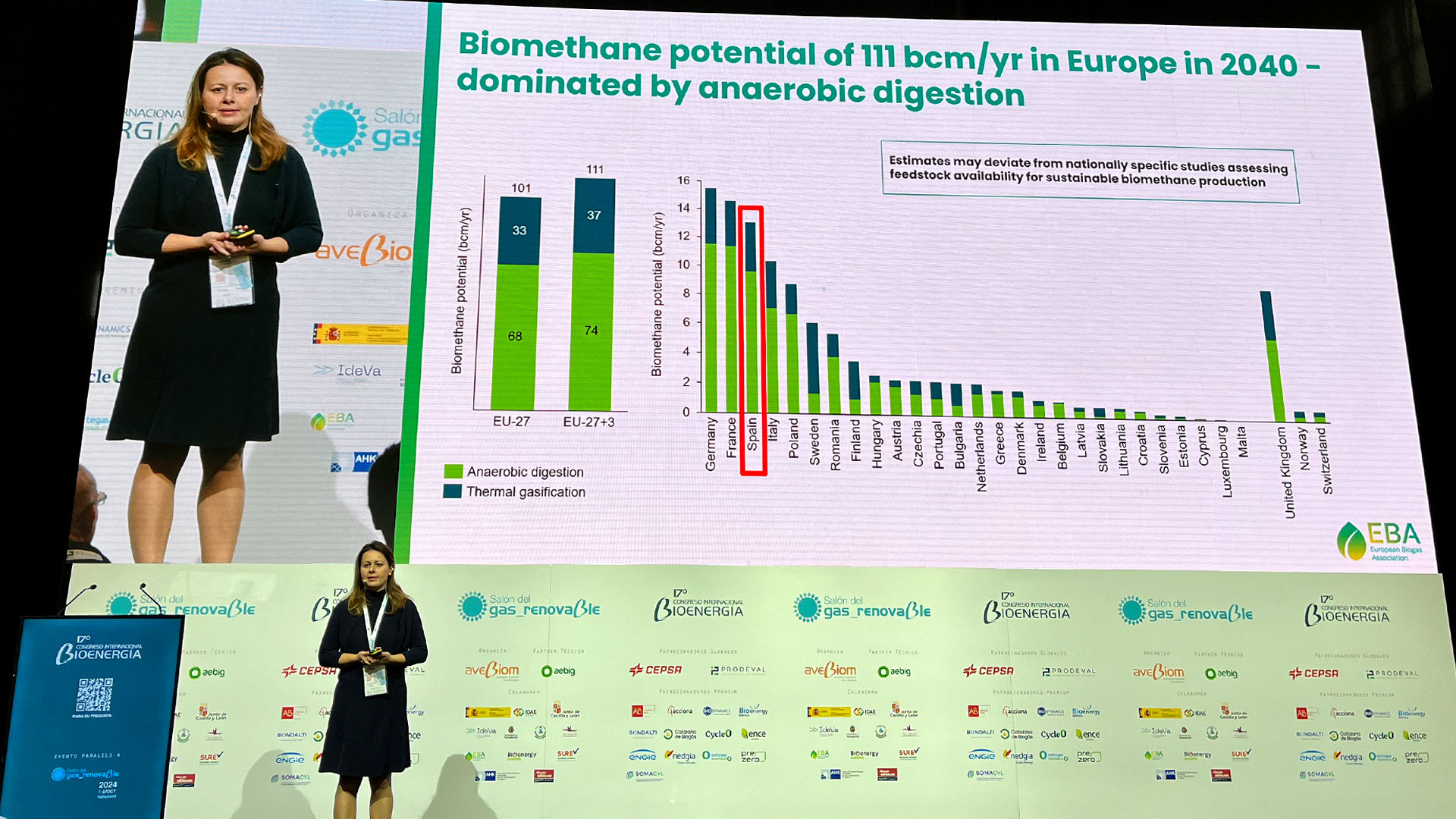The sector believes that the great possibilities and benefits for industrial decarbonization offered by biogas are not being fully utilized.
It’s necessary to streamline administrative processes, incentivize biomethane consumption, and adapt projects to local realities: the plant must adapt to the territory, not the territory to the plant.
On October 1st and 2nd, the Renewable Gas Exhibition was held in Valladolid, organized by AVEBIOM and AEBIG, the Spanish associations for biomass and biogas.
There is no doubt that we are witnessing a sector in full development, judging by the number of participants and exhibitors involved. However, from the speeches at the 17th International Bioenergy Congress held in parallel, the message seems to be that the great possibilities and benefits for industrial decarbonization offered by this technology are not being fully utilized, something that other countries like France or Germany are already doing.
In fact, Giulia Cancian, the Secretary General of the European Biogas Association (EBA), highlighted Spain as one of the countries with the greatest potential for biomethane production by 2040, with the capacity to become the third-largest producer in Europe: “Spain plays a key role for Europe, possessing one of the greatest potentials in terms of anaerobic digestion, with a robust livestock system, as well as a strong food and waste management industry.”
The reality, however, is that, as in other activities, environmental management seems to go in one direction while industrial management goes in another. And in a sector like this, the gap between the two seems even wider.
Perhaps the most surprising thing is that some of the professionals participating confirm that this potential exists, but also that to realize it, certain barriers must be overcome. According to Ruth Rivero, head of the strategic biomethane projects department at PreZero, “it’s necessary to streamline administrative processes and incentivize biomethane consumption. Subsidies aren’t needed; what we need is a framework that promotes industry development with consumption incentives, like the quota system in France, Germany, or Denmark.”
Josep Burjons, executive advisor of Catalana de Biogás, agrees, stating that we are currently “exporting” origin certificates, and he believes it’s necessary to regulate these certificates as a fundamental step to increase industrial demand for biogas. According to Burjons, “a biomethane plant cannot be justified without origin certificates.”
In his speech, Burjons also highlighted another key element for the implementation of biomethane: the adaptation of projects to local realities, with customized projects that take into account the specific characteristics of the territory. “The plant must adapt to the territory, not the territory to the plant. It doesn’t make sense to bring in waste from 50 kilometers away to a region already overwhelmed by livestock waste or where none exists.”

